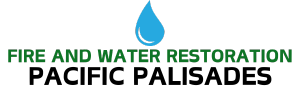Experiencing fire or water damage can be a traumatic and overwhelming event. Whether it’s due to a burst pipe, flooding, or a house fire, the aftermath can leave homeowners feeling unsure of what to do next. Acting quickly and effectively is critical in minimizing further damage and beginning the recovery process. Here are essential tips for dealing with fire or water damage that can help you regain control and restore your property safely.
Prioritize Safety First
Your first priority should always be your safety and the safety of your family or occupants. After a fire, ensure that the building is structurally sound before re-entering. For water damage, be cautious of electrical hazards—water and electricity are a dangerous combination. Turn off the main power supply if there’s a risk of electric shock, and do not step into standing water unless you are sure it’s safe.
Contact Emergency Services
If the situation is still active or dangerous, call 911 immediately. Firefighters can extinguish the fire and determine if your home is safe to re-enter. In the case of flooding or a burst pipe, contacting your local utility provider to shut off water access may also be necessary. Additionally, in both fire and water damage events, contacting a local disaster restoration company right away can help start the recovery process faster.
Document the Damage
Once it is safe to do so, take thorough photos and videos of the damage before any cleanup or restoration begins. This includes damaged belongings, structural elements, appliances, and anything affected by the incident. Proper documentation will be crucial when filing an insurance claim. Try to include timestamps if possible and keep an inventory of damaged items.
Notify Your Insurance Provider
Contact your homeowners’ insurance company as soon as possible to report the incident. Most policies require timely notification to process claims efficiently. Your insurance agent will guide you through the process, help you understand what is covered, and may recommend professional restoration services that are approved by your policy.
Begin Water Removal or Debris Cleanup
In water damage scenarios, time is critical. Mold can start growing in as little as 24–48 hours. Use wet vacuums, mops, and towels to remove as much standing water as possible. Open windows and use fans and dehumidifiers to help with drying. In the case of fire damage, you may need to clear soot, ash, and debris, which can pose health risks if not handled properly. Consider hiring professionals for both tasks if the damage is extensive or hazardous.
Prevent Further Damage
For fire damage, boarding up broken windows or doors and placing a tarp over holes in the roof can help protect your home from the elements and prevent theft. For water damage, fixing the source of the water—whether it’s a leaking pipe or overflowing gutter—is essential to prevent future incidents. Remove wet carpets, furniture, and items that could trap moisture or promote mold growth.
Seek Professional Restoration Services
Fire and water damage restoration professionals have the tools, training, and experience to safely clean and repair your property. They can conduct a complete damage assessment, dry out your home, remove hazardous materials, deodorize the space, and restore structural elements. Many companies also offer 24/7 emergency services and can work directly with your insurance company to ease the process.
Be Cautious About Mold and Smoke Damage
Even after visible water is removed, moisture can linger behind walls, under floors, and in the air, creating the perfect environment for mold. If you notice musty odors or signs of mold growth, seek professional mold remediation. In fire damage cases, smoke and soot can permeate walls, clothing, and HVAC systems. Professional cleaning may be necessary to remove the lingering smell and reduce health hazards.
Check for Structural Damage
Fire and water can compromise the integrity of your home. Walls, floors, ceilings, and support beams may be weakened and require inspection. Don’t assume everything is safe just because it looks intact. Hire a structural engineer or contractor to assess the extent of the damage before beginning major repairs.
Take Care of Your Mental Health
Disasters are emotionally draining. The stress of losing belongings, dealing with insurance claims, and navigating repairs can take a toll. Don’t hesitate to seek emotional support from friends, family, or even professional counselors. Taking care of your mental well-being is just as important as restoring your property.
Learn and Prepare for the Future
After recovery, consider taking preventive measures to minimize the risk of future damage. Install smoke detectors and water leak sensors. Keep important documents in fireproof and waterproof containers. Review your insurance policy and make updates if necessary to ensure you’re fully covered.
Dealing with fire or water damage can be one of the most challenging experiences a homeowner can face, but with the right actions and professional help, recovery is possible. Always prioritize safety, act quickly, and seek guidance from restoration experts and your insurance provider. Staying calm and informed can help turn a stressful situation into a manageable process, helping you get back to normal as soon as possible.
